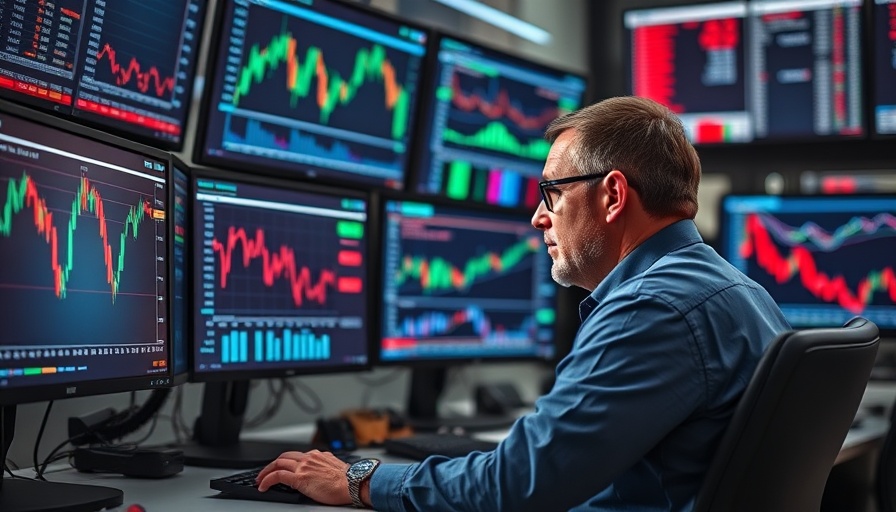
Trump's Tariff Decision Sends Shockwaves Through Global Markets
The recent announcement by President Donald Trump to impose steep tariffs on a wide range of imports has led to a turbulent storm in the global financial arena. In just 48 hours, investors saw a staggering loss exceeding $5 trillion, causing panic among traders and breaking market records for the largest declines since the pandemic began. Specifically, the Dow Jones Industrial Average dropped an alarming 2,231.07 points, or 5.5%, following a drop of 1,679 points just the day before.
The Immediate Effects of Tariffs on Global Trade
The impact of these tariffs extends far beyond just the United States. Many of America's biggest trading partners, including China, South Korea, and Japan, quickly responded with their own increased tariffs. China, in particular, announced a reciprocal 34% tariff on U.S. goods, sending a clear message that the trade war would escalate if policies did not change.
Understanding the Economic Consequences
Economists are sounding alarms regarding the potential long-term ramifications of Trump's tariff plans. Federal Reserve Chair Jerome Powell has expressed concerns over how tariffs could lead to persistent higher inflation and potentially elevate unemployment levels. Market analysts warn that these policies threaten not only Wall Street but also everyday citizens, who may find themselves facing increased prices for various goods and services.
Republican and Democratic Responses: A Shift in Bipartisanship?
This economic turmoil has provoked a rare instance of bipartisan cooperation in Congress. A coalition of Republican senators has begun to align with Democrats to regain control over tariff policy. This unusual partnership highlights the growing concern among lawmakers about the adverse effects of a trade war, especially as markets continue to slide.
Understanding the Bigger Picture
Treasury Secretary Scott Bessent characterized this moment as transformational for the American economy, emphasizing a shift towards reindustrializing the U.S. He mentioned the urgency to revive domestic manufacturing for the nation's security. However, it's a stark balancing act between national goals and global economic reality.
How Citizens Should Stay Informed and Adapt
With the economy hanging in the balance, it is crucial for citizens to stay informed and educated about these developments. This knowledge will empower them to navigate the potential challenges that arise from the evolving tariff landscape. Moreover, individual adaptation is vital; exploring local shopping options or supporting domestic products could become increasingly beneficial as prices fluctuate.
As this situation continues to unfold, it is essential to remain engaged with local and national economic policies and their implications. Understanding the nuances of tariff impacts not only informs personal financial decisions but also fosters community conversations about resilience in uncertain times.
 Add Row
Add Row  Add
Add 




Write A Comment